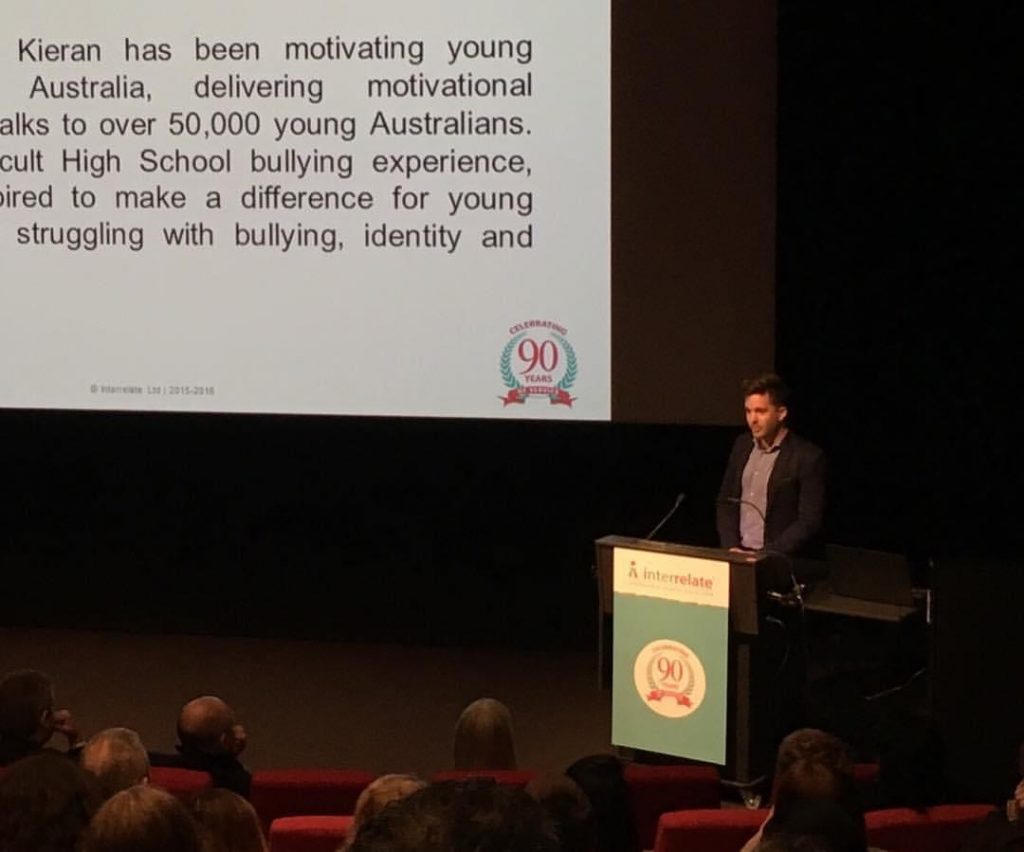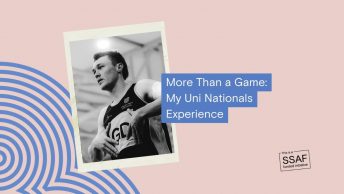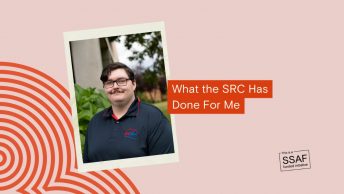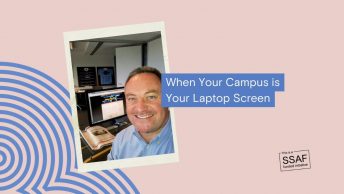This post is over three years old, the information may be outdated.
Being a young person is hard. You’re an adult or at least close to becoming an adult when you graduate high school and come to uni for the first time. It’s scary, but thanks to Charles Sturt alumni Kieran Bridger, young people don’t have to be anxious about growing into influential people. I spoke with the 2014 graduate to see what life has been like since he ended his time with Charles Sturt University.
What have you been up to since you graduated?
“So I finished at Charles Sturt in 2014 and I graduated with a Bachelor of Social Science with a major on social welfare and I’ve been working with students in schools ever since.
“My job is a bit unique in terms of leadership programs in schools. I go to a different school every day, traveling around Australia, talking to kids about leadership, about life, about resilience, wellbeing, growing up, all sorts of stuff in terms of the wellbeing field – which I love. It’s awesome.
“Our programs are really fun, they’re uplifting, they’re vibrant. There’s a lot of personal stories. We talk a lot about our own experiences of school and life. And basically, it’s just a day to encourage the students that we’re working with. So I love what I do, I think it’s awesome. Like, I can’t believe it’s a job to be honest.”

What inspired you to get into the youth motivation industry?
“The main thing for me was my own high school experience. I had a very bad experience of school. I got bullied a lot, which I talk a lot about. Year 11 and 12 for me were particularly hard. I really struggled, I lost my whole friendship group, my whole year group turned against me. Everything got pretty bad and I changed schools at the end of Year 11.
“Basically, it got to a point where it was like, I need to do something with this. So I think for me, it was, what can I do to make sure that nobody else who’s at that age will go through the same thing that I did?”

What inspiring stories have you heard from students?
“There’s so many. I think, having done this for so long, it’s so awesome hearing about where all the kids are up to. And the great thing is once they finish school, they’ll keep in touch and connect and keep doing what they’re doing.
“So probably there are two I can think of. One was in my group the very first year I was a mentor and she has gone on to become a gynecologist, an amazing doctor and doing incredible things for women’s rights, particularly in the area of abortion. And it’s just so cool to see what she’s doing. She’s only 26 I think, but doing amazing things in that field.
“The other one was a student in my group in my the second year who’s from Cessnock. So he comes from a very low SES area, so not a lot of opportunities, had a very difficult upbringing and was a very challenging student. For the whole week until the last day, I think something just clicked in him about what we’re doing. And he’s gone on to live in Canada, he’s coaching ice hockey and just doing amazing things with his life.
“It’s really cool, you know, like there’s no discrimination or judgment about these students.”
You’ve been in the industry for more than a decade now. But what does the future hold for you?
“I think for me, the main thing is really to move more into mental health. Obviously, we’ve talked a lot about leadership and life and wellbeing, but I don’t think we’ve really touched enough on mental health. So I think giving young people a better understanding of what mental health is.
“I work with older kids who will say stuff, like, ‘I’ve got anxiety’. They’re feeling upset, or they’re anxious, and they maybe don’t understand what that term actually means. So I think for us, it’s kind of like, how do we equip kids with an understanding of what mental health actually is, and how do we equip the parents and the teachers?
“It’s not just about the kids themselves, like a lot of kids don’t talk about this stuff. It’s alarming when you look at the stats… I think it’s 220,000, roughly, with depression and anxiety from 15 to 24. Those numbers are really scary. So how do we equip our kids with a better understanding of what mental health is? And how do we equip their parents with a better understanding of how to help their kids?
“Because I think, I mean, any parent would have got kids so I get it, you know, if my kids are in that position, I’d want them to understand and know what it is. That’s where I’m kind of hoping to go.

What advice would you give to future students and past students?
“The main thing is just do what you love. The whole reason I started studying with Charles Sturt is because Charles Sturt had a degree that I wanted to do. I’ve always been interested in youth and young people and mental health and I had the opportunity to do that through both Wagga and Bathurst campus.
“My advice would be, figure out what makes you happy. What makes you want to get out of bed in the morning. And if you can study that, and do that for work, then you’re going to live your best life.
“And for the students out there, recognise uni is just a part of your life. I know you’re stressed, and you’re eating two minute noodles and drinking instant coffee because you’ve got no money. But you’ll get there you know, it’s three or four years out of your life, and then you’ll end up doing what you love for the rest of your life. So make that sacrifice and you’ll be happy forever.”










